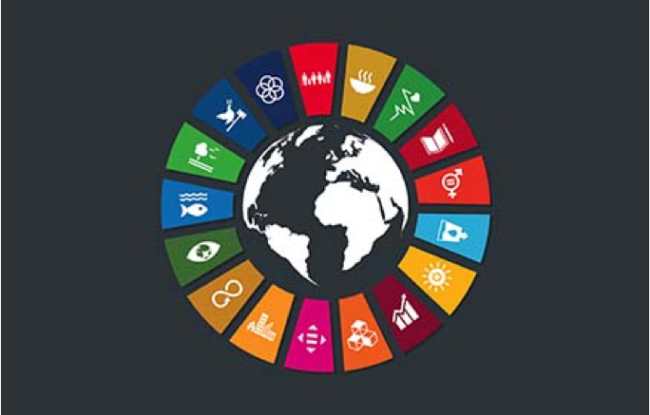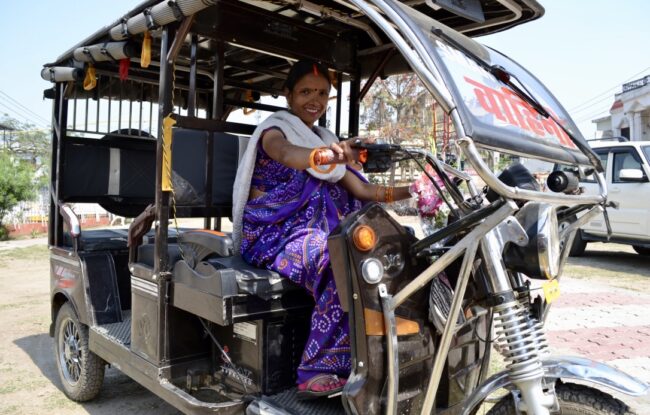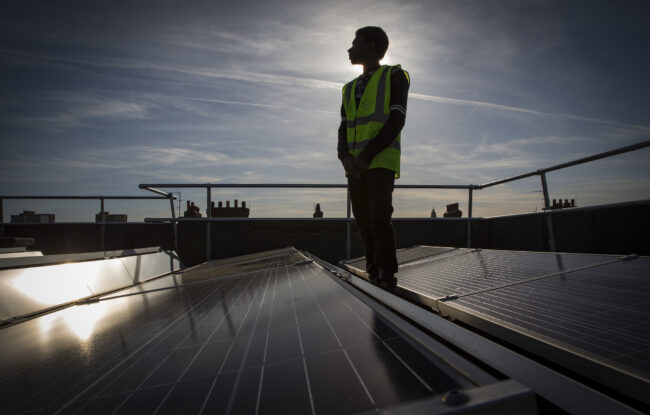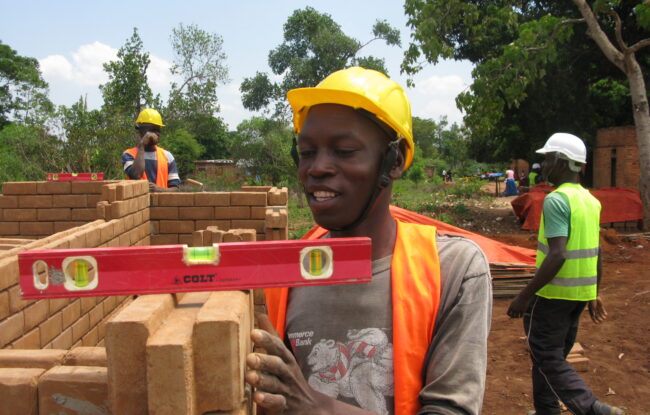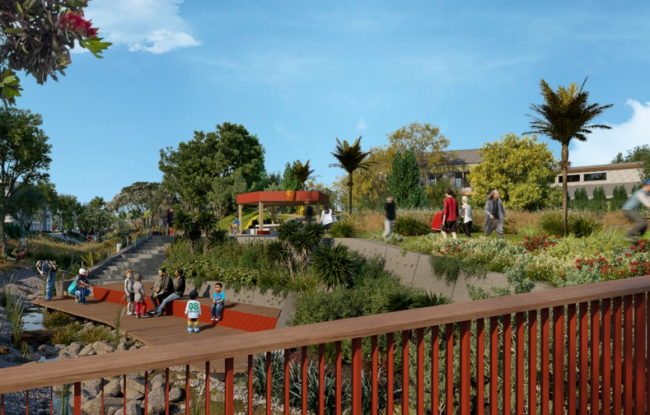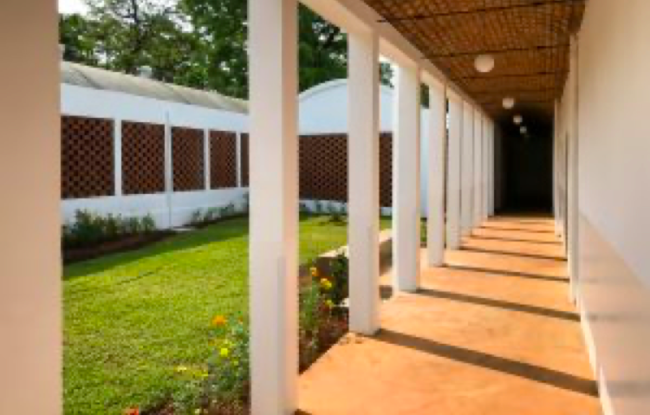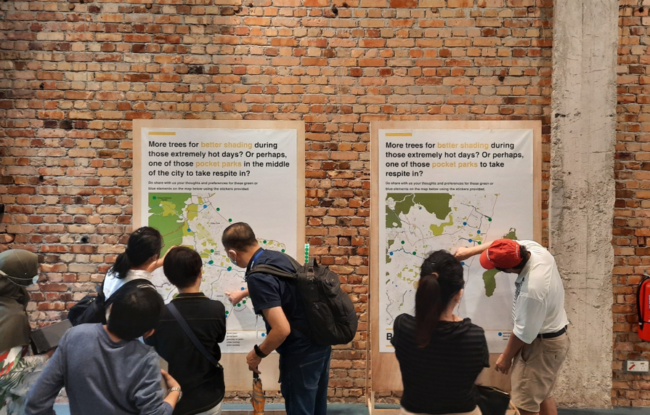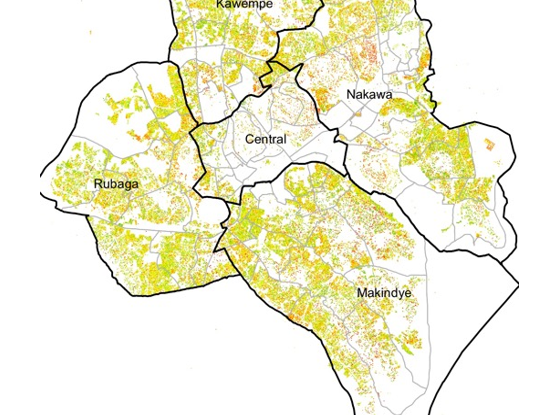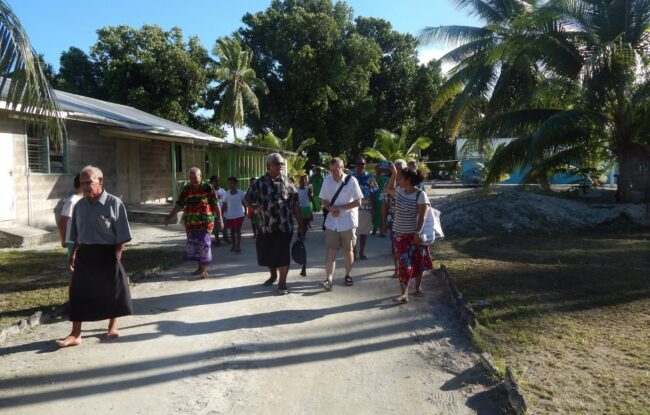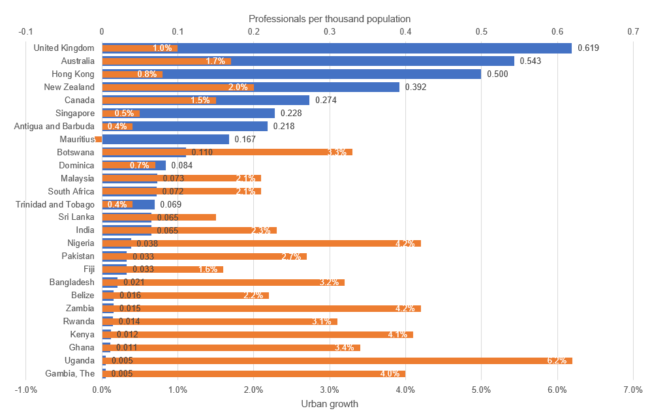



RESPONDING TO CLIMATE CHANGE AND RAPID URBANISATION
GOOD PRACTICE PLATFORM i
To supplement the Call to Action on Sustainable Urbanisation across the Commonwealth, this Good Practice Platform has been created to exemplify the sort of innovative and collaborative work already being undertaken locally to help advance sustainable urbanisation in the Commonwealth. The intention is to illustrate how, with a sharper focus and appropriate resources, the Commonwealth can come together to more effectively tackle the challenges of climate change, rapid urbanisation and the recovery from Covid-19. These examples have been shared by a number of organisations working in the field of sustainable urbanisation, if you would like to submit an example please email info@commonwealthsustainablecities.org.
Loading
This online course equips students and professionals with the knowledge and skills needed to address the SDGs. It presents the concept of sustainable development and explains the basis of partnership working that underpins the SDG approach. Each SDG is explored through its own module, drawing on expertise from more than 100 leading international researchers, policy-makers and practitioners. Students work in interdisciplinary teams on applied projects set by external organisations through our University Living Lab, so that their assessment contributes to helping deliver the SDGs.…
10 million cycle rickshaw drivers in India work in difficult conditions for minimal pay. They must also spend a big chunk of their income paying expensive rickshaw rental fees. The alternative, auto-rickshaws, are also expensive for drivers to rent, and although the work is less physically demanding, they are polluting and noisy due to their diesel and petrol engines. Many women in socially conservative communities have been blocked from driving rickshaws, leaving them with few opportunities for employment other than domestic work. Social enterprise SMV Green aims to eliminate the drudgery of cycle rickshaw work by helping drivers switch to electric rickshaws (e-rickshaws). It provides a ‘on…
Repowering helps communities fund, install and manage renewable power stations on social housing blocks and community buildings. Solar energy systems on social housing estates in London are generating valuable community funds, and the organisation’s holistic approach tackles fuel poverty while providing employment and mentoring opportunities for young people and local residents.…
Uganda has one of the fastest growing populations on earth. Roughly 80% of the population is younger than 30; many of these young people lack employable skills and youth unemployment is a growing problem. Meanwhile, there is high demand for new housing, schools and other infrastructure. Haileybury Youth Trusts answers both challenges by training young people in sustainable construction techniques, providing skills and promoting greener building.…
Te Ara Awataha is a 1.5km green infrastructure project linking Northcote town centre to existing parks, schools and homes in Northcote, Auckland. It’s part of the wider urban regeneration of Northcote and seeks to resolve long-standing stormwater issues while creating a valued and resilient environmental asset. The project includes partial daylighting of the Awataha Stream, a shared walking and cycling path, native planting, play destinations and the integration of cultural design elements.…
Rapid urbanisation in Kenya means that the current housing deficit stands at over 2 million homes - with an estimated 61% of Kenyans living in slums. Several challenges currently limit the housing supply including high cost of land, high construction costs and outdated construction materials and methods. Kenya remains over-dependent on cement-based materials delivered through highly wasteful and inefficient methods which harm the environment.…
Penang is situated in Southeast Asia which is projected by the Intergovernmental Panel on Climate Change (IPCC) to be one of the three regions in the world to be hit the hardest by climate change. Penang is mostly susceptible to increasing temperatures, heatwaves and frequent extreme weather events such as heavy rainfall which leads to flooding. Several vulnerable communities in Penang include communities living in areas that are flood prone. The programme is a multilateral initiative that looks to enhance urban resilience and reduce human and ecosystem vulnerability to climate change impacts and extreme weather events through the implementation of nature-based solutions (NBS). It also seeks…
Uganda faces a lack of revenue in city-governments to be able to invest in infrastructure and services needed for sustainable urban development. This project looked to address this through the digitalisation and automation of revenue and expenditure systems, building in-house capacity, and enhancing the social contract between citizens and the city.…
LOCAL is a mechanism to promote climate change resilient communities and economics by increasing financing for and investment in climate change adaptation at the local level. LOCAL combines performance–based climate resilience grants which ensure programming and verification of climate expenditures at the local level, with technical and capacity building. The project is designed to re-enforce existing national and sub-national financial and fiscal delivery systems, and it uses the demonstration effect to trigger further flows for local adaptation, including national fiscal transfers and global climate finance for local authorities through their central governments.…
There is a severe lack of capacities across several Commonwealth countries, particularly those in the global South, to deal with rapid urbanization, climate change and informality. The Commonwealth’s recent initiatives to quantify this lack of capacity illustrates the critical gap in the availability of trained professionals such as architects, planners, engineers and surveyors that these geographies face. Especially in the public sector, there is the need to foster change in thinking and operating, in order to better design, develop and manage cities and human settlements. These cities need to be more inclusive and sustainable and need to develop the local capacity to respond to challenges …


